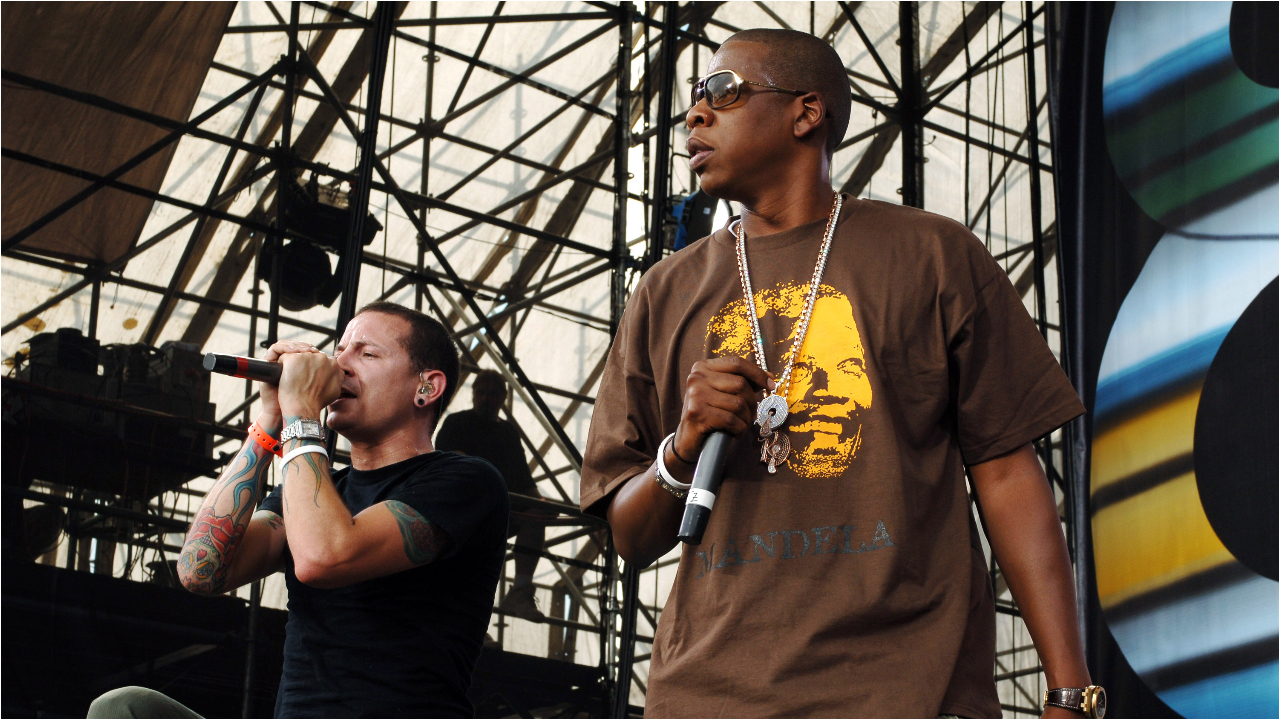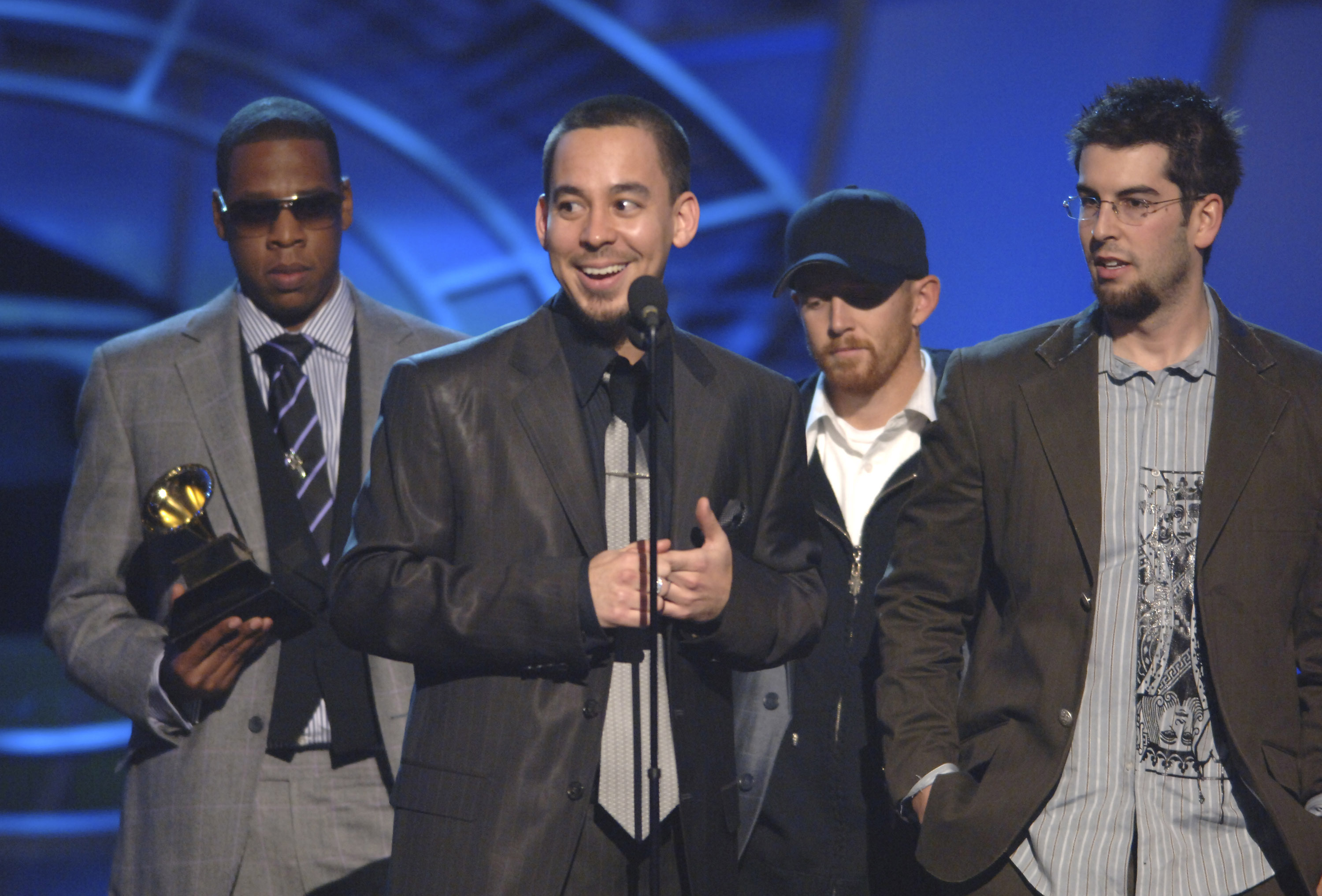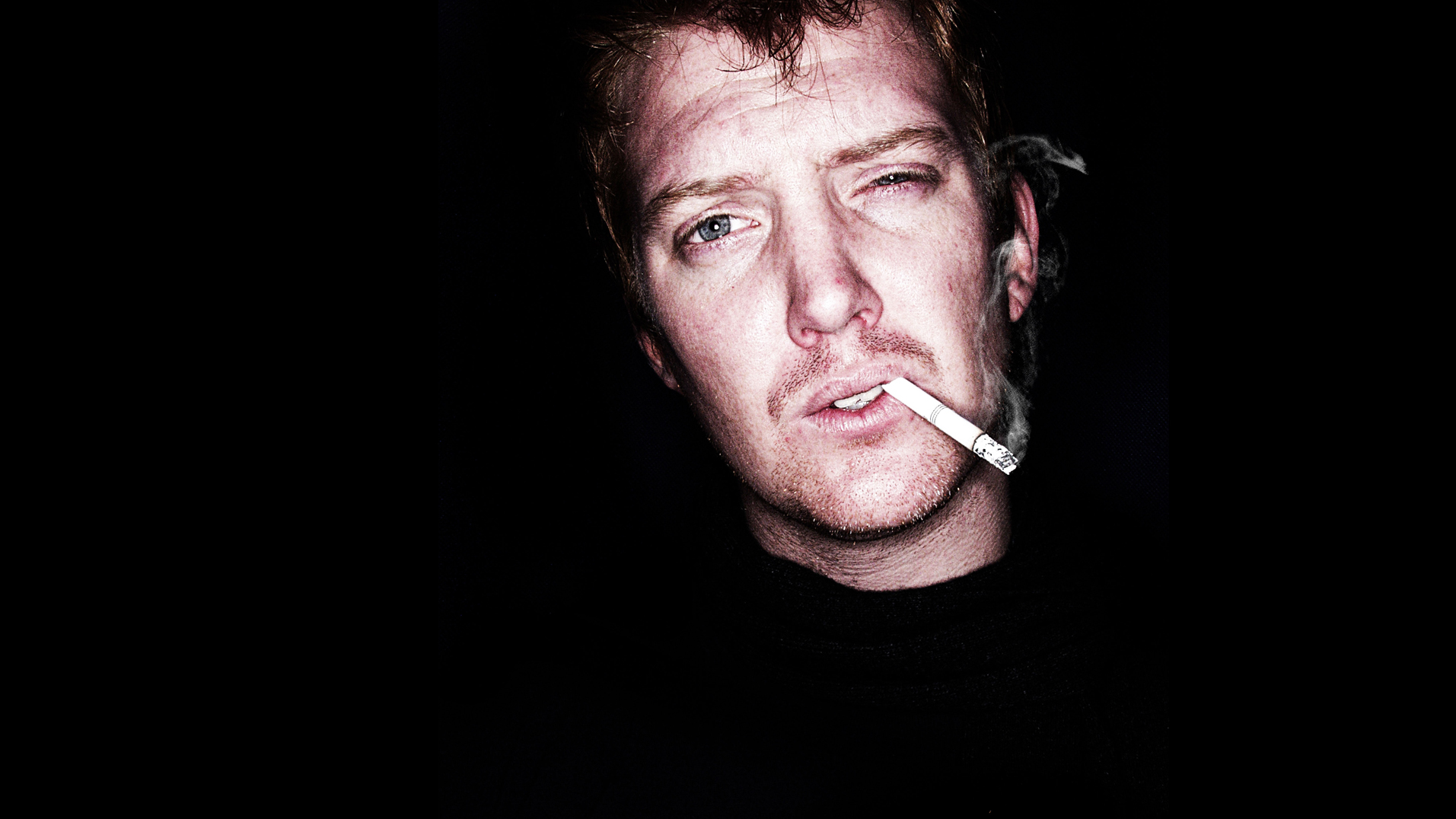"It’s about those times when you’ve got no feeling left or you just don’t care." The song that helped Linkin Park kiss goodbye to the nu metal era - and that got a new lease of life courtesy of one rap megastar
Few bands have two separate versions of one song celebrated equally as classics, but Linkin Park did that

Select the newsletters you’d like to receive. Then, add your email to sign up.
You are now subscribed
Your newsletter sign-up was successful
Want to add more newsletters?

Every Friday
Louder
Louder’s weekly newsletter is jam-packed with the team’s personal highlights from the last seven days, including features, breaking news, reviews and tons of juicy exclusives from the world of alternative music.

Every Friday
Classic Rock
The Classic Rock newsletter is an essential read for the discerning rock fan. Every week we bring you the news, reviews and the very best features and interviews from our extensive archive. Written by rock fans for rock fans.

Every Friday
Metal Hammer
For the last four decades Metal Hammer has been the world’s greatest metal magazine. Created by metalheads for metalheads, ‘Hammer takes you behind the scenes, closer to the action, and nearer to the bands that you love the most.

Every Friday
Prog
The Prog newsletter brings you the very best of Prog Magazine and our website, every Friday. We'll deliver you the very latest news from the Prog universe, informative features and archive material from Prog’s impressive vault.
It was the Grammy Awards, 28 February 2006, and a visibly flustered Mike Shinoda was stood at the podium.
The Linkin Park rapper and songwriter had just been presented with the award for Best Rap/ Sung Collaboration, a gong the band had won, along with rapper Jay-Z, for their track Numb/Encore. The song had been the standout cut from their now iconic, 2004 MTV-sponsored collab, Collison Course, which had seen them mash together the soaring nu metal of their 2003 megahit Numb, with Jay-Z’s soul-inflected Encore.
On being handed the award, Mike promptly passed it to Jay-Z, who to the Linkin Park man‘s evident discomfort, seemed happy to sit back and let him do the talking. “I put the award in this man’s hand because MTV came to Jay and they said, ‘Who do you want to do a mashup album with?’, and he said us,” went Mike’s self-effacing acceptance speech. “And if he didn’t say us, we wouldn’t be standing here right now.”
OK sure, the story goes that when MTV approached Jay-Z with the idea of putting together a mashup collab, his immediate response had been to call Linkin Park, but looking back there’s no doubt Mike is chronically underselling it here. On hearing that Jay-Z had requested the band specifically, Mike, who had learned the art of production by cut and pasting songs together on Pro Tools in his bedroom as a teen, got to work, putting together the rough instrumentals of six tracks and emailing them over to the rapper. Jay-Z’s response on hearing them? “Oh shit!”

And of course, MTV were no fools. They knew they had a money maker on their hands with Collision Course, a natural pairing of two huge artists with major cross-over appeal., so it was no surprise when Numb/Encore became a colossal hit for both Linkin Park and Jay-Z. In particular, the collab gave Numb a renewed lease of life, although it was fair to say the original version was already long ubiquitous.
After all, by that point, Linkin Park were undisputedly one of the biggest bands on the planet. Their 2000 debut, Hybrid Theory, which had thrown together serrated metal, with electronica, hip-hop and towering pop melodies, had set a new benchmark for heavy music, becoming the best-selling album in the world in 2001.
They had followed it up in 2003 with Meteora, an record that took their jagged sound to a grander, more polished level. Containing some of the biggest bangers of their career in singles Somewhere I Belong, Faint and Breaking the Habit, it’s album closer Numb which stands out as the album’s highlight and Linkin Park’s defining anthem.
Sign up below to get the latest from Metal Hammer, plus exclusive special offers, direct to your inbox!
Opening with an instantly recognisable keyboard refrain that builds into one of the bands most colossal, anthemic cuts, it’s the track that best summed up the “epic and cinematic, powerful and dynamic” vision the band had for Meteora. To date, the track has been certified 4x multi-platinum, and has clocked up over a billion streams on both Spotify and YouTube.
“I think it was a nice way to end the album because it kind of sums up the record. It’s very recognisable as our sound,” Mike Shinoda told Shoutweb in March 2003 “It sounds like a Linkin Park song, but it does have some mood that Meteora has... When you hear it, you can easily recognize it as a Linkin Park song, but it obviously belongs on Meteora. It obviously belongs in this new group of songs just because of the way the tone of the song is, and the lyrics are.”
Numb was one of the last songs to be written for the album, coming together one week before the band went into NRG studios in August 2002 to start recording. Working around the intro hook, the band said “the song came together quickly and almost effortlessly".
“It’s kind of about those times when you’ve got no feeling left or you just don’t care,” Mike told Shoutweb of the meaning behind the song. “It’s almost like exhaustion or something which funny enough is how we felt after touring [Hybrid Theory] last year.”
For many fans, Numb represents vocalist Chester Bennington at his best, both vocally and lyrically. Despite being sick for five weeks during the recording sessions and having to record his vocals while the rest of the album was being mixed, it’s one of his most powerful performances.
Having already talked at length about his own struggles with mental health, the song lays it all out on the slab. Following the heart-wrenching melancholy of the verses, you can hear his voice splinter under the weight of loneliness, self-loathing and disaffection when the chorus hits: “I'm tired of being what you want me to be. Feeling so faithless, lost under the surface... All I want to do, Is be more like me, And be less like you.”
Perhaps the most emotional performance of Numb would come after Chester’s death in 2017. On October 27 that year, the band and 17,500 fans packed into LA’s Hollywood Bowl for a tribute concert to honour his life and bright, fierce talent. And some of rock’s biggest stars signed up in their droves to pay their own respects. That night, Korn’s Jonathan Davis took the mic for One Step Closer and Blink 182 performed What I’ve Done, while Avenged Sevenfold’s M Shadows sung Faint and Burn It Down and Bring Me The Horizon’s Oli Skyes fronted Crawling.
However, as the intro to Numb played over the speakers, none of Chester’s metal contemporaries stepped forward. Instead, the stage was dark and empty, one spotlight illuminating a lone leaf-adorned mic stand while the crowd began to sing, tearfully carrying Chester’s lyrics all the way up to the rafters. It was a gut-punching reminder of Chester’s singular talent to put into words how it felt to be a disappointment, how it felt to feel invisible.
And that’s the enduring power of Numb today. As the track prepares to pass it’s twentieth anniversary this year, its message and emotional impact remains undimmed, a track that gave and continues to give a voice to millions of people across the world.
Danniii Leivers writes for Classic Rock, Metal Hammer, Prog, The Guardian, NME, Alternative Press, Rock Sound, The Line Of Best Fit and more. She loves the 90s, and is happy where the sea is bluest.
You must confirm your public display name before commenting
Please logout and then login again, you will then be prompted to enter your display name.
![Numb (Official Music Video) [4K UPGRADE] – Linkin Park - YouTube](https://img.youtube.com/vi/kXYiU_JCYtU/maxresdefault.jpg)
![Numb / Encore [Live] (Official Music Video) [4K Upgrade] - Linkin Park / JAY-Z - YouTube](https://img.youtube.com/vi/DLlF2FMv968/maxresdefault.jpg)

